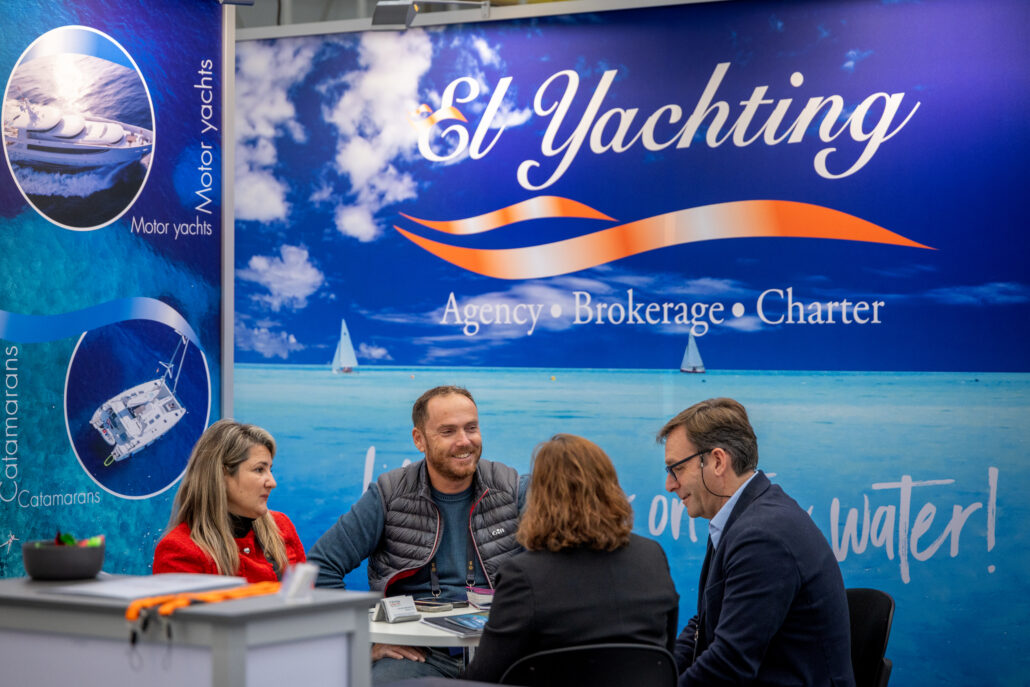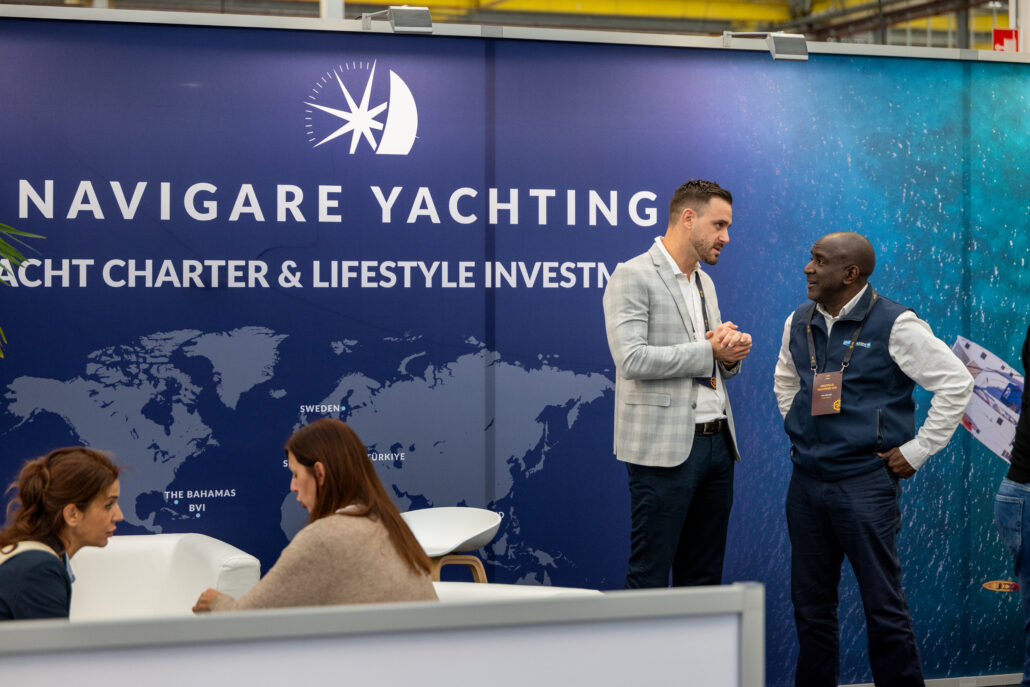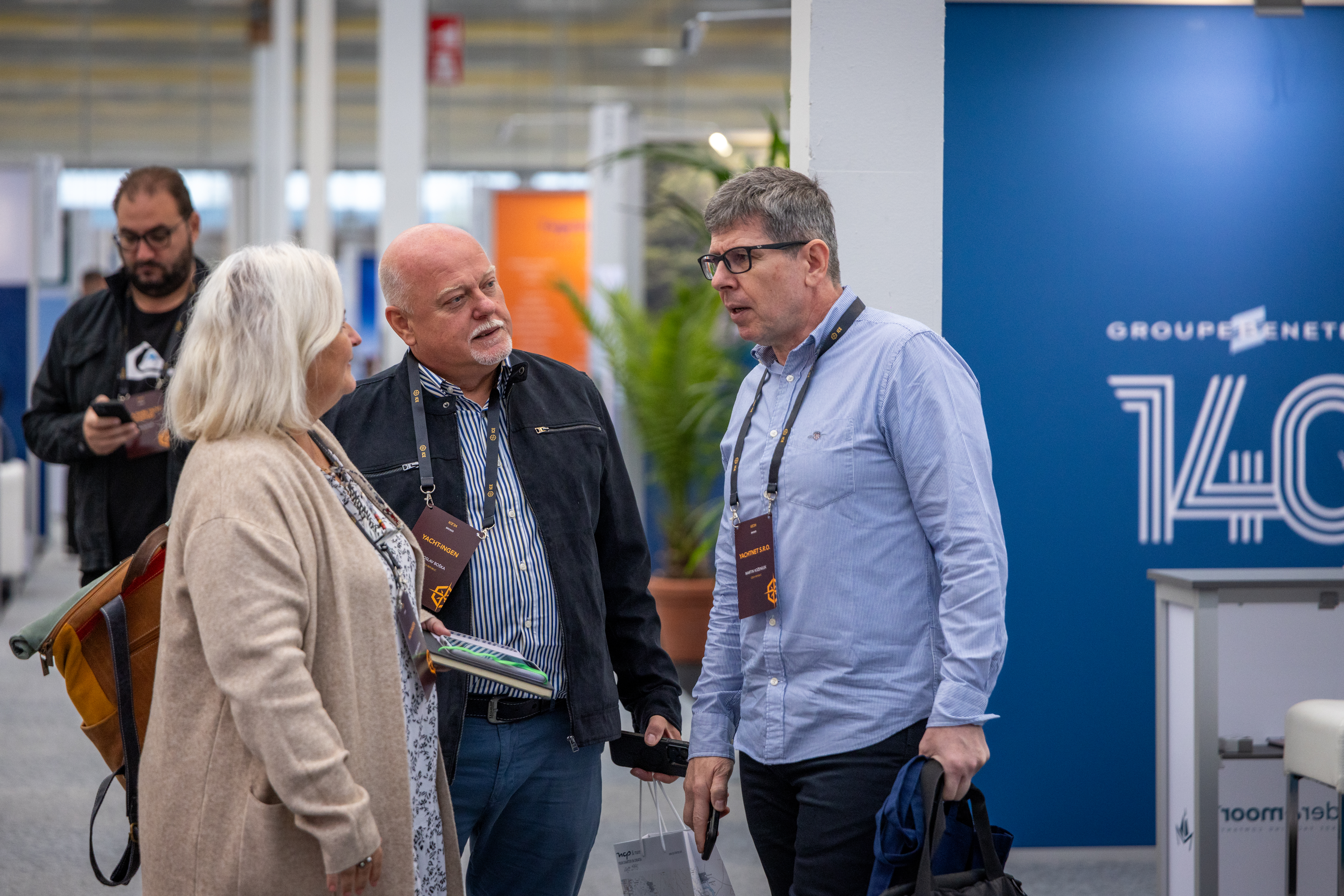In the second part of our interview series, experienced charter brokers share why the International Charter Expo (ICE) has become a must-attend event for them year after year.
From valuable networking with charter companies to discovering new business opportunities and reconnecting with industry friends, they explain what keeps them coming back.
Their insights show how ICE continues to be the leading B2B meeting point for the global yacht charter community.
Which part of ICE gives you the most value – meetings, networking, the Handshake app, or something else?
- Anne – Tubber:
For me, it’s definitely the networking. The real value comes from sharing ideas, experiences, and testing those assumptions we all make as entrepreneurs. It’s incredibly useful to hear how others are doing things, what’s working, and what’s not. There are times when things are going extremely well for us at Tubber. But then the question is: is it just the market, or are we actually doing something different or better? And if it’s a slow season, is it just us or is everyone feeling it? Those open conversations are what make ICE so valuable. It’s not just about doing business, it’s about learning, adjusting, and growing together.
- Bora – Charterberater:
I wouldn’t narrow this down to a singular thing. It is the culmination of it all, delivered by a hands-on and very friendly ICE team which makes the experience pleasant. In the end every event was beneficial for me and I hope you continue this format and also the Charter Meetups.
- Veronique – GlobeSailor:
The face-to-face meetings and networking opportunities are invaluable. And of course, the Handshake app facilitates and makes it easier to organize these for us. We are all located in different parts of the world, with different cultures, and communication is always easier face-to-face! It’s the best way to bond or even talk about serious matters.
- Marvin – 1a Yachtcharter:
Definitely the meetings , whether with new or long-standing partners. The Handshake app was very helpful in the beginning.
How is networking at ICE different from other boat shows or online meetings?
- Anne – Tubber:
I don’t really think you can compare ICE to other boat shows, they simply serve a completely different purpose. Most consumer shows, like Düsseldorf or Cannes, aren’t really built for structured meetings. They’re often crowded, less organised when it comes to appointments, and you’re surrounded by guests. That makes it really tricky to have the kind of open, honest conversations you sometimes need with partners. There are topics, like margins, operational issues, or growth strategies that you just don’t want overheard by clients. ICE remains the place where serious networking happens, focused, productive, and with the right people in the room.
- Bora – Charterberater:
This is an important difference for me, as it is impossible to have meaningful talks with new businesses while I am exhibiting on a B2C event. In fact I will drop any meeting to be there for a potential client.
- Marvin – 1a Yachtcharter:
I don’t think it’s the event itself that makes the difference, but the people who attend. The participants and visitors at ICE and other European locations are simply the best.

What are your goals for the next ICE, and how can the event help your company grow?
- Anne – Tubber:
One of my main goals this year is to have some really open conversations with our partners about cost-sharing – how we can work together more sustainably when it comes to booking expenses. Setting clear quality standards is also high on the agenda, and that’s something we’re actively discussing within the European Yachting Alliance. Another big focus is deepening our relationships in the crewed luxury market. We’re seeing more and more interest from both returning and new guests who want these fully crewed experiences.
- Bora – Charterberater:
Actually, my goal is to go out in Amsterdam this time, because last year I did not manage to, which was a pity.
- Veronique – GlobeSailor:
We’re always looking for new ways to grow, whether it’s building better relationships or expanding into exciting new sailing destinations as the industry evolves.
- Marvin – 1a Yachtcharter:
I hope we can inspire more of the market to move towards fairer competition. There’s currently a lot of unrest, and since 2021 we’ve been discussing the same core issues again and again. I have the feeling that our topics are finally starting to gain relevance and that’s a good sign for the entire industry.

How long have you been working in the yacht charter business, and what changes have you noticed over the years?
- Anne – Tubber:
I started back in 2006, renting out my own yacht, an Allures 40. A real turning point for us came during those early editions of ICE, actually. Those first events helped us connect with the right partners. Some of those early meetings have grown into long-term collaborations and even friendships, which is pretty special. Online bookings are absolutely on the rise, at Tubber, we’ve seen a 70% year-on-year increase, but people still want that personal connection. Well, the landscape is shifting again. Croatia has become too pricey for many people, Greece is overflowing with subsidised catamarans, and discounts are everywhere you look. Many charter companies have reported around 20% fewer bookings this season, and even more concerning: lower revenue due to declining average booking values. But you know, with every shift comes opportunity, right? Right now, there’s a clear chance to raise the bar in service and accessibility, especially in markets that haven’t traditionally been strong in bareboat charters. At Tubber, we see this as a natural expansion: offering seamless service not just to classic sailors, but to new audiences who expect more – and are willing to pay for it.
- Bora – Charterberater:
I have been a professional charter agent since the year 2000. For as long as I can think I have seen people trying to shape the charter business into an online-centric model, trying to copy large touristic booking platforms. However I keep being told by almost every client that they are not interested in that at all. The problem I see, with regards to recent technologies like AI, heavy automation etc. is that companies are using those tools for all the wrong reasons, mainly increasing their margins at the cost of actual service towards their clients, which is bound to fail in this high value, high service demand industry. The clients are very well aware what they are paying for and it is not smart to rationalize yourself out of existence in the eyes of your customers.
- Veronique – GlobeSailor:
I’ve been working for GlobeSailor for almost 8 years now, as head of the B2B department and fleet manager. What I like is that we carefully select the charter companies we want to work with. And our partners are not only considered as another name or brand on our website. We try to have a close relationship with them and always try to improve our collaboration. Over the years, we have noticed some changes regarding the type of clients, which have allowed us to develop new niches, like for example cabin charters, and sailing courses. We’re no longer dealing with seasoned sailors only. Our cabin cruise offers allow families and couples to join sailing trips that would have once required a private charter. It’s a great way to make sailing more accessible, help people fall in love with the sea… and maybe inspire them to return next year with friends (on a private charter)!
- Marvin – 1a Yachtcharter:
We have been active in the yacht charter market for 25 years. Over the past decade, we have seen significant positive changes such as the rise of digital booking platforms, leaner processes, and a higher level of professionalism at the bases. On the downside, the industry has faced intense price competition and discount-driven online platforms, as well as several insolvencies that have damaged market confidence.


